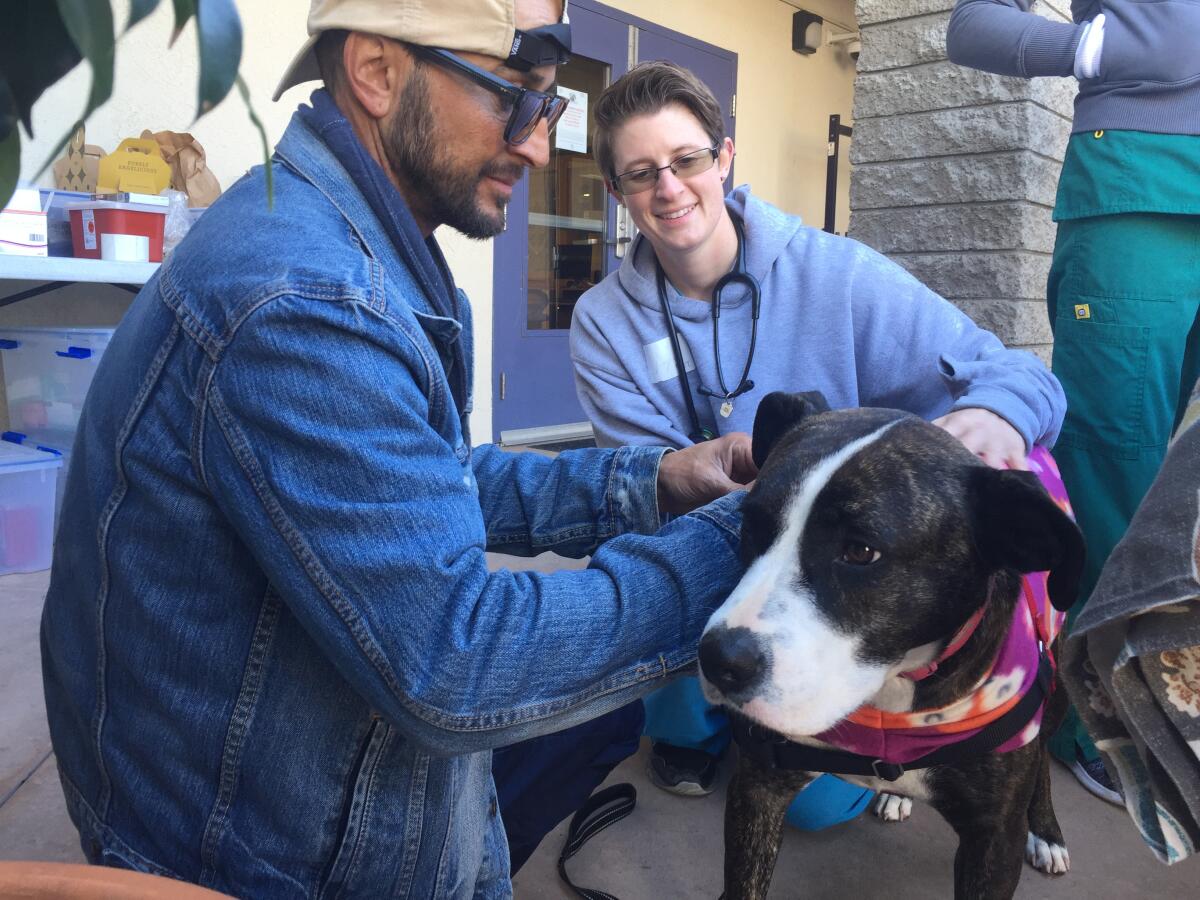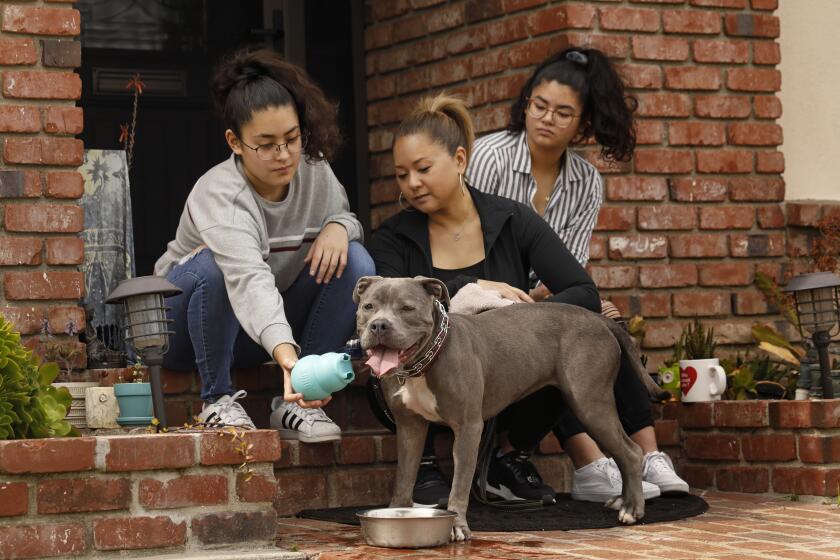Pet telemedicine took hold in the pandemic. A lawsuit wants to make it permanent

- Share via
A group of veterinarians and pet owners in California is asking the state to permit more telemedicine for animals even after the pandemic ends.
In a federal lawsuit filed Monday, the San Francisco Society for the Prevention of Cruelty to Animals says the state should not end waivers allowed during the pandemic for remote visits and asks that the rules be relaxed further.
“People can use telemedicine for themselves and their children, so why not for their pets?” said Brandy Kuentzel, general counsel at the San Francisco SPCA. “Telemedicine can be a vital tool to improve the lives of pets and the people who love them.”
The pandemic has changed how people live and work, and many want those changes to remain after the threat of COVID-19 fades. As the lawsuit notes, people “live in a world that has grown daily accustomed to medical appointments, court hearings, and classroom instruction conducted by Zoom and other online teleconference platforms.”
The lawsuit contends pet owners and veterinarians have a 1st Amendment free speech right to telemedicine. Restrictions on veterinarians also violate equal protection guarantees because doctors who treat people can do so remotely, the suit argues.
UC Berkeley Law School Dean Erwin Chemerinsky, a constitutional scholar, said the lawsuit may succeed on free speech grounds.
“It obviously is a restriction on speech,” he said. “ I think the question will be whether the government can justify this restriction as necessary to protect the animals. That is, can they show that telemedicine is inherently so dangerous that it must be prohibited?”
Pet adoption is booming amid the coronavirus stay-at-home restrictions.
The state veterinarian board has “arbitrarily deprived veterinarians of the opportunity to speak with clients using modern telemedicine communication methods, like Zoom, that are available to doctors who care for human beings, and which have become increasingly valuable and essential tools to the delivery of safe and comprehensive healthcare,” the suit says.
California has justified its rules restricting veterinarian telemedicine on the grounds that animals can’t talk, the suit says. But physicians regularly do virtual visits with patients who can’t speak, including infants, and rely on family members to relay information.
“In light of California’s treatment of telemedicine for humans, that rationale makes little sense,” the suit says.
A pandemic rule that is set to expire in June allows California veterinarians to treat animals remotely if they already were patients. Before the pandemic, veterinarians could do telemedicine only if the animal had a condition that had previously been treated in the office.
The group of pet owners and veterinarians named as plaintiffs in the suit say remote visits should also be permitted for new patients and animals with new conditions. The suit notes that many animals become extremely anxious when taken to the vet, and some people live in remote places without easy access to animal specialists.
California was one of many states to loosen veterinary telemedicine restrictions during the pandemic, which caused a boom in pet adoptions. Veterinarians in Ontario, Canada, have successfully used the kind of telemedicine the lawsuit seeks for nearly three years, according to a statement accompanying the lawsuit.
Amid the coronavirus lockdown, interest in adopting and fostering pets is soaring. Many facilities have waiting lists, even for kittens.
Other states, including Michigan, Oklahoma and Virginia, already permit veterinarians to see animals remotely as long as the vet decides it is appropriate, the suit says.
Courts have upheld professional licensing restrictions like California’s veterinarian rules on telemedicine, but the suit says the Supreme Court has made it clear that states do not have “unfettered power to reduce a group’s 1st Amendment rights by simply imposing a licensing requirement.”
Bruce Wagman, one of the lawyers for the SPCA, said the state regulations violate the 1st Amendment because they curtail communication — speech — between veterinarians and their clients.
Regardless of the legal outcome, the suit, filed in Sacramento, may bring pressure on the state to remove restrictions. It seeks an injunction against them.
Michelle Cave, a spokeswoman for the state Department of Consumer Affairs, which oversees the California Veterinary Medical Board, said it does not comment on pending litigation.
More to Read
Sign up for Essential California
The most important California stories and recommendations in your inbox every morning.
You may occasionally receive promotional content from the Los Angeles Times.















